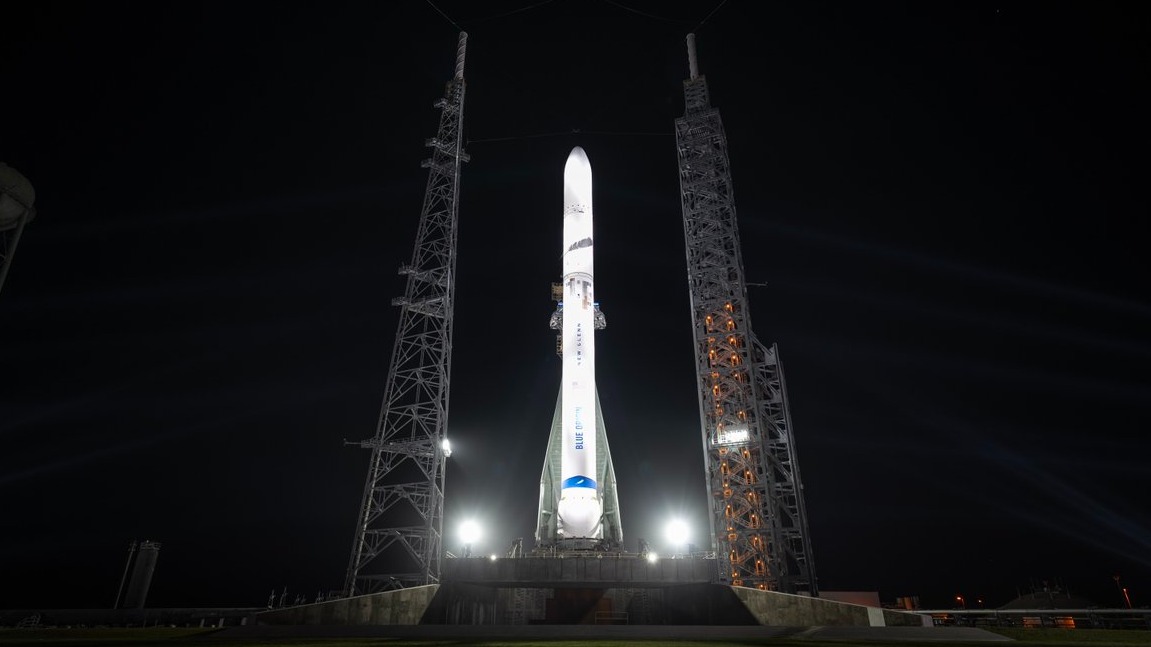Blue Origin's New Glenn rocket rises on launch pad ahead of debut liftoff (photo)
The flight is targeted for August, pending the success of tests this year.

Blue Origin's powerful new rocket has gone vertical on the launch pad for testing, ahead of a possible debut flight later this year.
The New Glenn rocket from Blue Origin rolled out on to Launch Complex 36 (LC-36) at Cape Canaveral Space Force Station in Florida on Wednesday (Feb. 21), the company founded by Amazon's Jeff Bezos announced.
The heavy-lift rocket will be put through its paces in the coming weeks and months with "several demonstrations of cryogenic fluid loading, pressure control and the vehicle’s venting systems," Blue Origin officials wrote in a statement.
Related: Facts about Blue Origin, Jeff Bezos' spaceflight company
New Glenn is about 322 feet (98 meters) tall and can send roughly 50 tons (45 metric tons) to low Earth orbit. It will be Blue Origin's first orbital rocket. The company currently flies people and payloads to suborbital space with a smaller vehicle called New Shepard.
New Glenn's lifting capacity will be twice that of SpaceX's workhorse Falcon 9 rocket, and, like the Falcon 9, its first stage will be reusable. That booster will feature seven of Blue Origin's BE-4 engines, which continue to undergo hot-fire tests at NASA's Marshall Space Flight Center in Huntsville, Alabama and at a Blue Origin site in west Texas.
The BE-4 was already tested during a spaceflight in January — the first flight of United Launch Alliance's new Vulcan Centaur rocket, which sent Astrobotic's Peregrine moon lander to space. While the launch went well, a fuel leak aboard Peregrine caused the lander to come crashing back to Earth 10 days after liftoff.
Breaking space news, the latest updates on rocket launches, skywatching events and more!
New Glenn's development has been going on for more than a decade, and its first targeted launch date of 2020 has been delayed several times. The rocket's debut effort will aim to launch NASA's two-spacecraft EscaPADE (Escape and Plasma Acceleration and Dynamics Explorers) Mars mission no earlier than August.

Elizabeth Howell (she/her), Ph.D., was a staff writer in the spaceflight channel between 2022 and 2024 specializing in Canadian space news. She was contributing writer for Space.com for 10 years from 2012 to 2024. Elizabeth's reporting includes multiple exclusives with the White House, leading world coverage about a lost-and-found space tomato on the International Space Station, witnessing five human spaceflight launches on two continents, flying parabolic, working inside a spacesuit, and participating in a simulated Mars mission. Her latest book, "Why Am I Taller?" (ECW Press, 2022) is co-written with astronaut Dave Williams.
